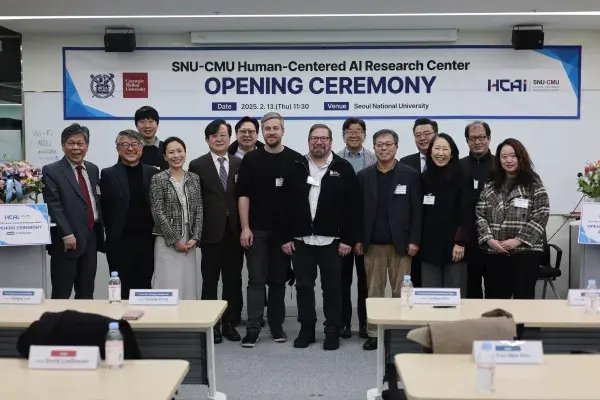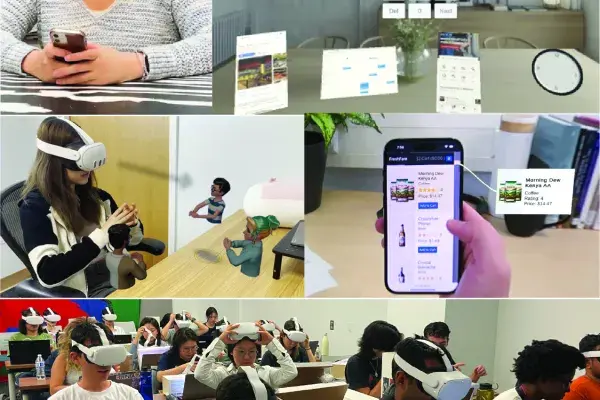
Working With AI
Chatbot companions, generated videos, banking software and homework help. Artificial intelligence software has found its way into more and...

SCS Tool Improves Community Buy-In for Policy Decisions
Community policies, such as those for zoning or parking, are typically made at the top, which can leave community members feeling frustrat...

Harrison Earns Teaching Innovation Award at Celebration of Education
Chris Harrison received the university's 2025 Teaching Innovation Award to recognize his transformative work on the course "Designing Huma...

Researchers Create Flat-to-Shape Objects With Computer-Controlled Sewing
CMU researchers introduced a novel method for fabricating functional flat-to-shape objects using a computer-controlled sewing machine. ...

CMU at CHI 2025
Our halls are abuzz with talk of “CHI” (pronounced “kai”), the nickname for the upcoming conference on computer human interaction (CHI). ...

CMU Launches Human-Centered AI Research Center with Seoul National University
Carnegie Mellon University and Seoul National University (SNU) have announced a new collaboration to advance human-centered artificial int...

Up Next in Special Topics
Our Special Topics courses provide the opportunity to explore the future of HCI, guided by the experts who are shaping the field. These dy...

VR/AR Could Help People Manage Everyday Stressors
Everyday situations can sometimes feel like big stressors, whether it's delivering an important work presentation, attending a party full ...

Using Virtual Reality to Connect Players With Ocean Ecosystems
Fewer people have been to the deepest parts of the ocean than have walked on the surface of the moon. Researchers at Carnegie Mellon Unive...


